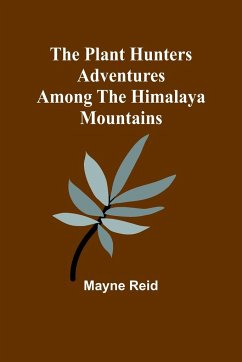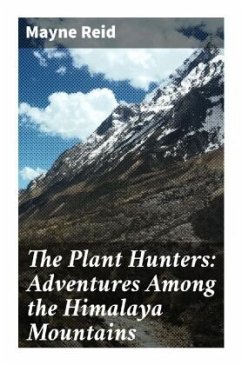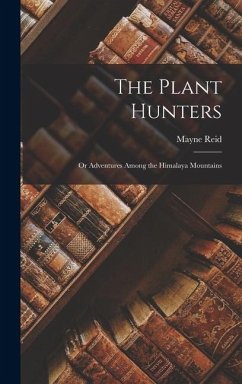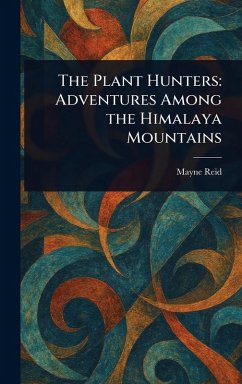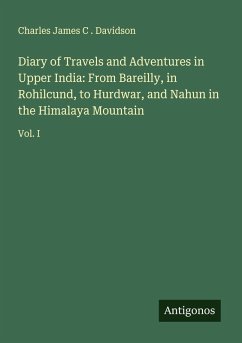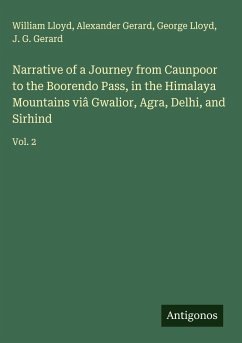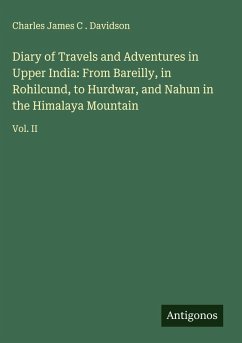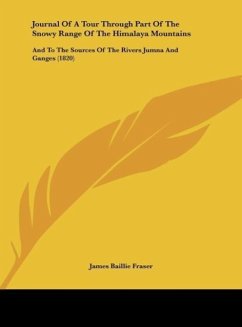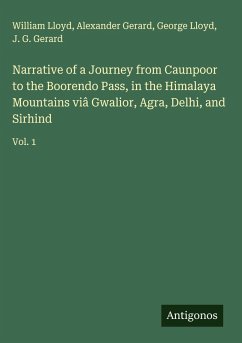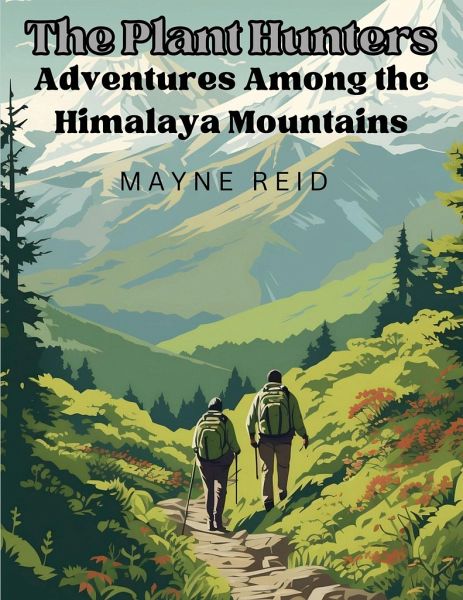
The Plant Hunters - Adventures Among the Himalaya Mountains
Versandkostenfrei!
Versandfertig in 1-2 Wochen
15,99 €
inkl. MwSt.

PAYBACK Punkte
8 °P sammeln!
Originally published in 1858 at the height of the passion for exotic specimens, this is the story of a young Bavarian botanist, Karl Linden, engaged in a plant-hunting expedition to the stupendous mountains of the Himalayas in Tibet. It is a vivid early narrative and primary souce, with commentaries on the Himalayas, plant hunting, inspecting cliffs, the Ibex & other fauna, ascent of mountains, aerostatics, and of course the botany and value of the plants they are collecting. Mayne Reid, a pre-eminent and popular writer, was primarily a novelist (1818-1883) who wrote adventure stories from jus...
Originally published in 1858 at the height of the passion for exotic specimens, this is the story of a young Bavarian botanist, Karl Linden, engaged in a plant-hunting expedition to the stupendous mountains of the Himalayas in Tibet. It is a vivid early narrative and primary souce, with commentaries on the Himalayas, plant hunting, inspecting cliffs, the Ibex & other fauna, ascent of mountains, aerostatics, and of course the botany and value of the plants they are collecting. Mayne Reid, a pre-eminent and popular writer, was primarily a novelist (1818-1883) who wrote adventure stories from just before the Civil War until his death in 1883. Reid's career included two periods in the U. S: 1840-49 and 1867-70. He had emigrated to the United States in his early twenties, reaching New Orleans in January, 1840, where he pursued a varied career as a shopkeeper, overseer of slaves, schoolmaster, and actor, with occasional forays into hunting and Indian warfare. Reid returned to England in 1849, and embarked upon a successful career as a writer of adventure novels and books for boys He was a close friend of Poe (though their writings were miles apart), played a gallant role in the Mexican War, worked as a journalist and wrote most of his first novel while in the United States. He was an influence on the young mind of Teddy Roosevelt, as Roosevelt reveals in his Autobiography; while Arthur Conan Doyle wrote in his 1890s essay "Juvenilia" that when young he always kept "Mr. Ballantyne or Captain Mayne Reid at my elbow"; Robert Louis Stevenson praised Reid in the Vailima Letters, and J. Frank Dobie has said he, "dared convey real information in his romances."





